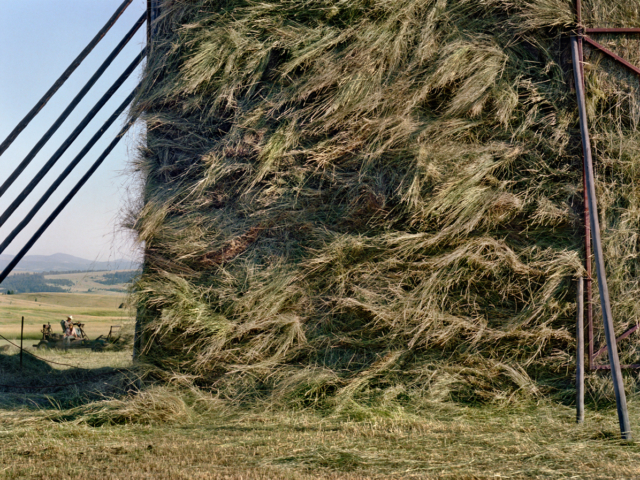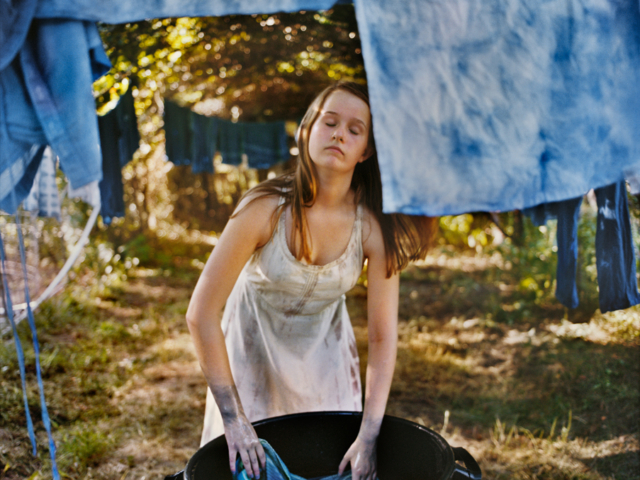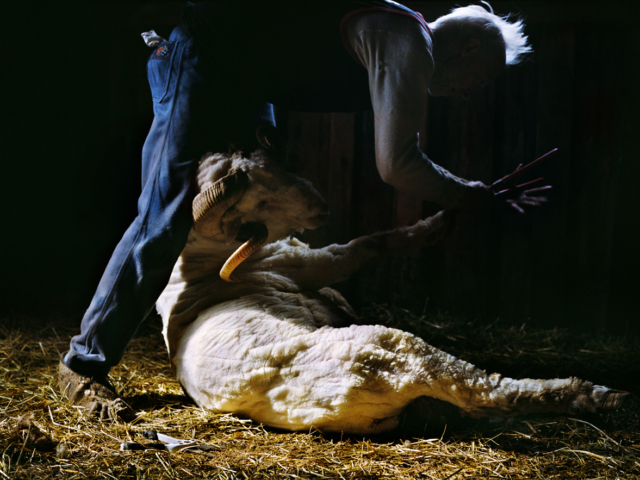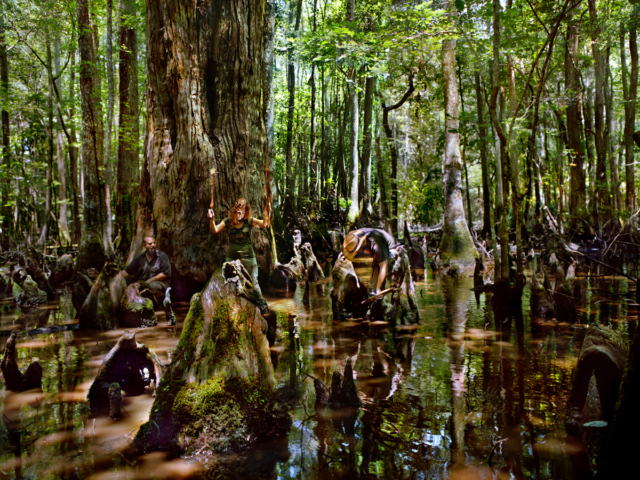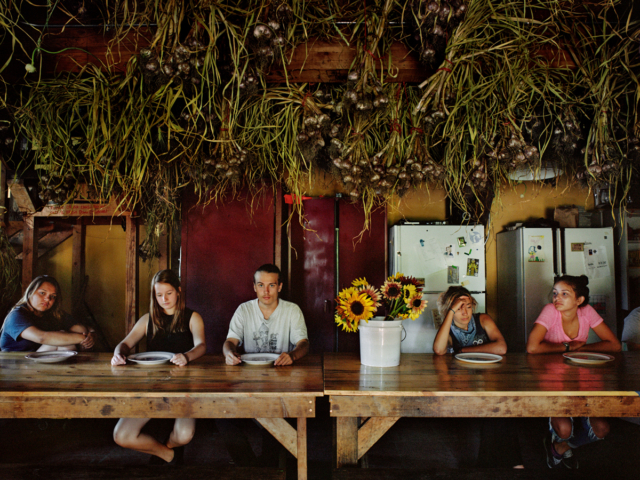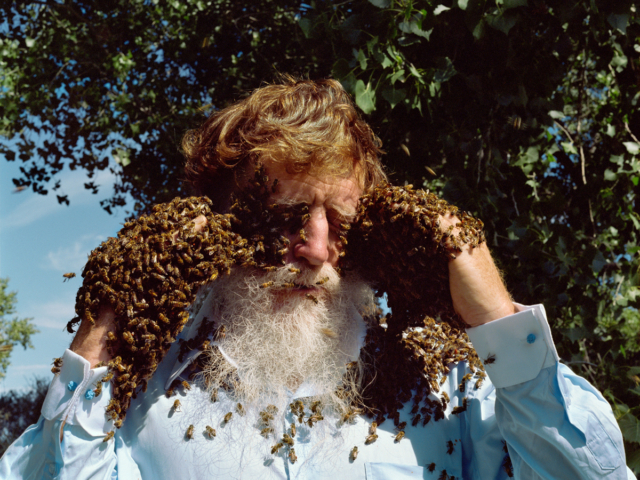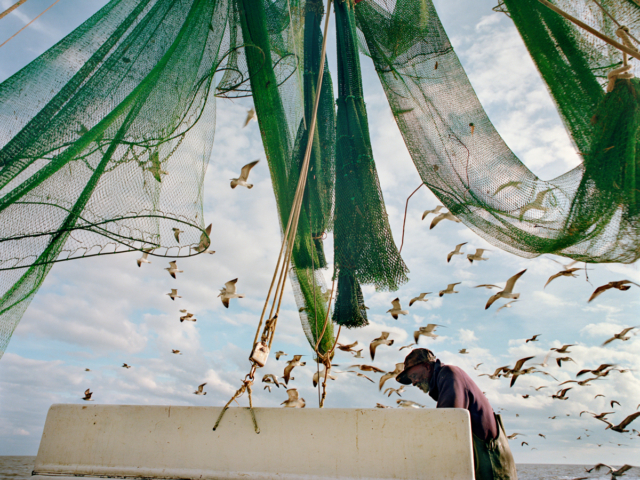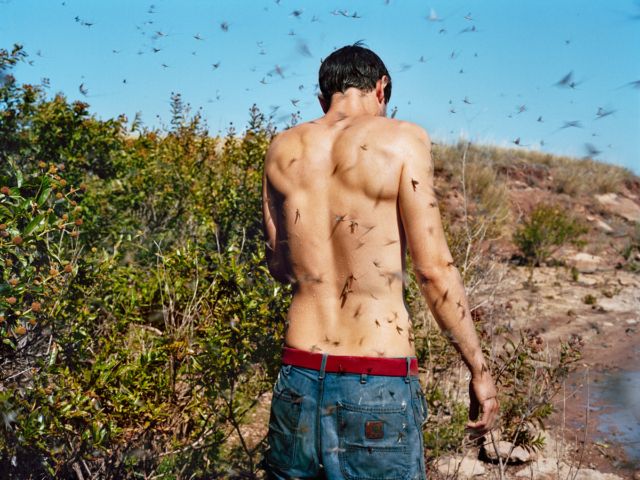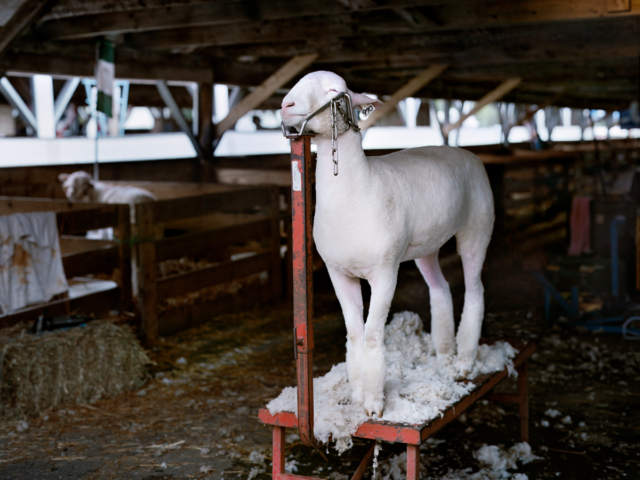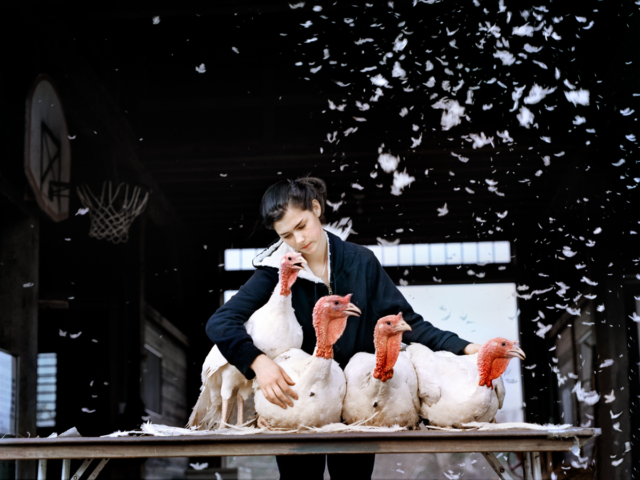Holly Lynton
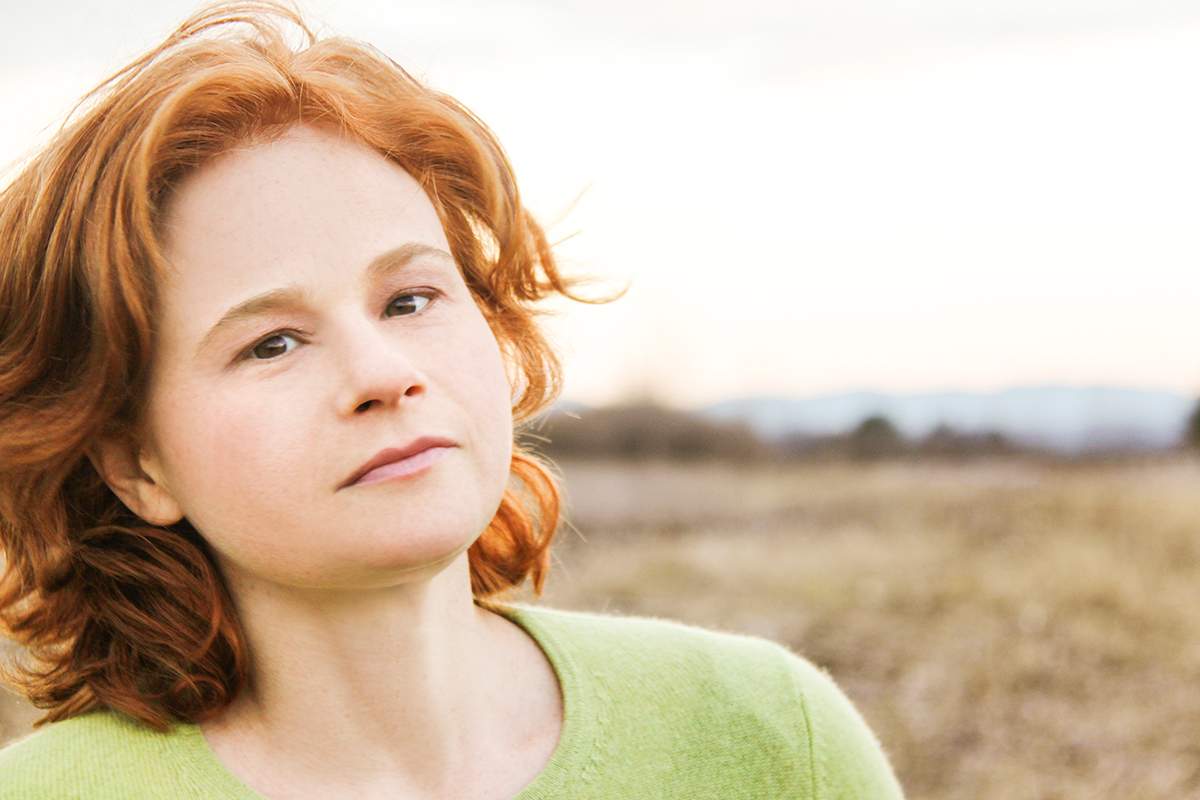
About
Holly Lynton (http://www.hollylynton.com/) was born in Boulder, Colorado and was raised both there and in New York City. Her photographs focus on understanding rural communities in the United States through their agricultural history, current industry, and ritual. The images she creates underscore the importance of having unmediated experiences with the natural world. In a new project, she examines the intersection of faith, history, and the environment. Lynton received a BA in Psychology in 1994 from Yale University, where she also studied photography. She received an MFA in Photography from Bard College in 2000. Lynton’s photographs have been exhibited internationally and can be found in the collections of the Lowe Art Museum at the University of Miami, the Center for Creative Photography at the University of Arizona, The Fidelity Collection, and the Yale University Art Gallery, where they were on view during the 2021 exhibition On the Basis of Art: 150 Years of Women at Yale. Lynton has been a Visiting Lecturer at Amherst College in Massachusetts and the Aegean Center for the Fine Arts in Paros, Greece, and a Mentor to MFA students at the New Hampshire Institute of the Arts. Lynton has received numerous awards and grants including The Aaron Siskind Individual Photographer’s Fellowship, the Massachusetts Cultural Council Fellowship, the Syngenta Photography Award, and an Artist Resource Trust Grant. She has been a finalist for the Maud Morgan Prize, Museum of Fine Arts, Boston and the St Botolph Distinguished Artist Award. Yale University recently awarded her a postdoctoral research fellowship at the Gilder Lehrman Center for the Study of Slavery, Resistance, and Abolition for her series on Methodist Camp Meetings in South Carolina. This body of work is currently on view at the Zimmerli Art Museum at Rutgers University. Lynton has received commissioned assignments from numerous publications including the University of Mississippi, the New York Times, the Guardian, the New Yorker, and Bloomberg Businessweek. Her photographs have been featured and reviewed in The New Yorker, Harvard Design Magazine, The Miami Herald, The New York Times, The Village Voice, Preview Massachusetts, Oxford American, Southern Cultures Journal, ARTnews and The Boston Globe.
Scheduled to Teach
Gallery
LACP Interviews Holly Lynton
LACP asks Holly Lynton ten questions about their background, career in and beliefs about photography.
Los Angeles Center of Photography: What kind of photographer are you?
Holly Lynton: I usually describe myself as a fine art photographer who also occasionally photographs on assignments for editorial publications. I make work out in the world as opposed to in my studio. I’m interested in movement and gesture, and the intersection of faith, history, and the environment. My projects tend to be incredibly long term (10 years) as I return to places over and over to make images, and much of what I photograph is seasonal and finite.
LACP: How long have you been shooting?
HL: I began photographing when I was in college. I took a two-week summer course while I waited tables on Nantucket for the summer, and then returned to Yale in the fall and applied to the Intro to Photography class. Fortunately, I was accepted into the class and have been photographing ever since.
LACP: Where did you get your training?
HL: I studied photography as an undergraduate at Yale University and then received my MFA at Bard College. I also studied abroad when I was an undergraduate. I participated in an art history course in Italy and attended the Aegean Center for Fine Arts in Paros, Greece. Those experiences were fundamental in terms of how I create today. I learned to see color by painting watercolors of white buildings in Greece. After graduating from Yale, I interned at Aperture and worked as a photo editor for a variety of publications, which gave me other valuable perspectives.
LACP: When did you know you wanted to devote your life to photography?
HL: After I completed my undergraduate studies, I didn’t know what I wanted to be. I was a psychology major and originally planned to be a child psychologist and a writer of short stories or novels. I moved back to New York right after graduation, where I continued writing and making photographs. Eventually, it became clear to me that photography was my medium before I applied to graduate school, and I decided to devote my life to it then.
LACP: Did you ever come close to giving up?
HL: Yes! During college, after I returned from Europe, I hit a serious rut. I kept making mediocre versions of pictures I’d made before and couldn’t seem to find my way out of it. This continued for three semesters and each time, I almost thought of giving up, but then I’d find just one image on my contact sheet (it was all black and white 35mm then) that I wanted to print, which would convince me to sign up for another class. Finally, my final semester, I found a new way of making pictures. It was a valuable lesson to learn that there will always be periods of failure but working through them can lead to ingenuity. I learned how to embrace the discomfort rather than give up.
LACP: Have you sacrificed anything by being a photographer?
HL: I don’t know if I have sacrificed anything, although it certainly isn’t a lucrative profession. It can be hard for your work to be so tied to who you are personally as well, and for the rewards to be in the form of recognition. I think it’s important to find balance in your life as an artist, and to find other aspects of life that are important and fulfilling as well. It’s a field with a lot of rejection, so you need a thick skin. It’s also a job you can do nearly 24-7, so in a way I sacrifice down time. My husband would say I’m always working. And when we travel it’s often for my work or a photo trip. I very rarely take a pure vacation, although I’m working towards having at least one a year! Especially post pandemic— it was so easy to work seven days a week and twelve hours a day during quarantine. As a mother of two children, I decided early on to prioritize parenting and to balance my photography career with motherhood, which often meant sacrificing opportunities in my career to spend the time with my children, especially ones like residencies. If asked to do it over, I’d make the same decision again.
LACP: What have you gained by being a photographer?
HL: I have learned so much through my work – about people and history. I’ve experienced parts of rural America through my work I never would have visited had it not been for my photography. I’ve built community in many parts of the states and replicated a way of being that was natural to me. As a child, I traveled a circuit, spending time in three different states each year and being a part of different communities in each. Now, I do that in my work. Photography has also taught me how to see.
LACP: What classes do you teach at LACP?
HL: Photographic Mythologies: Describing the Invisible
LACP: What do you love most about teaching?
HL: I love seeing students excited about the medium and when they discover something new in it. I was working with a student recently who felt stuck, and we had a conversation about her work and what her photographic interests were. We spent time looking at her photos, talking about what was working and what wasn’t, and then she became energized and made new work from a place of excitement. I love seeing everyone’s unique vision. There’s the somewhat cliched saying in photography that no two people will ever photograph an object, a place, a person, the same way, but it’s true. And there is such beauty in all the difference.
LACP: What advice would you give someone who is thinking about making a career in photography?
HL: I would pass on some advice I received from one of my mentors. The first piece was that you can make a career out of being an artist or a photographer, but also that being an artist is a way of being. It’s how you see and approach the world and you are that no matter what. It can be in the way you create a home or make food. That advice helped me to see that I had value no matter what was happening in my career, which would naturally have highs and lows. And the second piece of advice was about persistence. She said that talent was one thing, but to have a sustained career in photography would require persistence. And she’s right. Sometimes an opportunity will blossom ten years after the seed was planted – corny metaphor I know, but it’s true!
